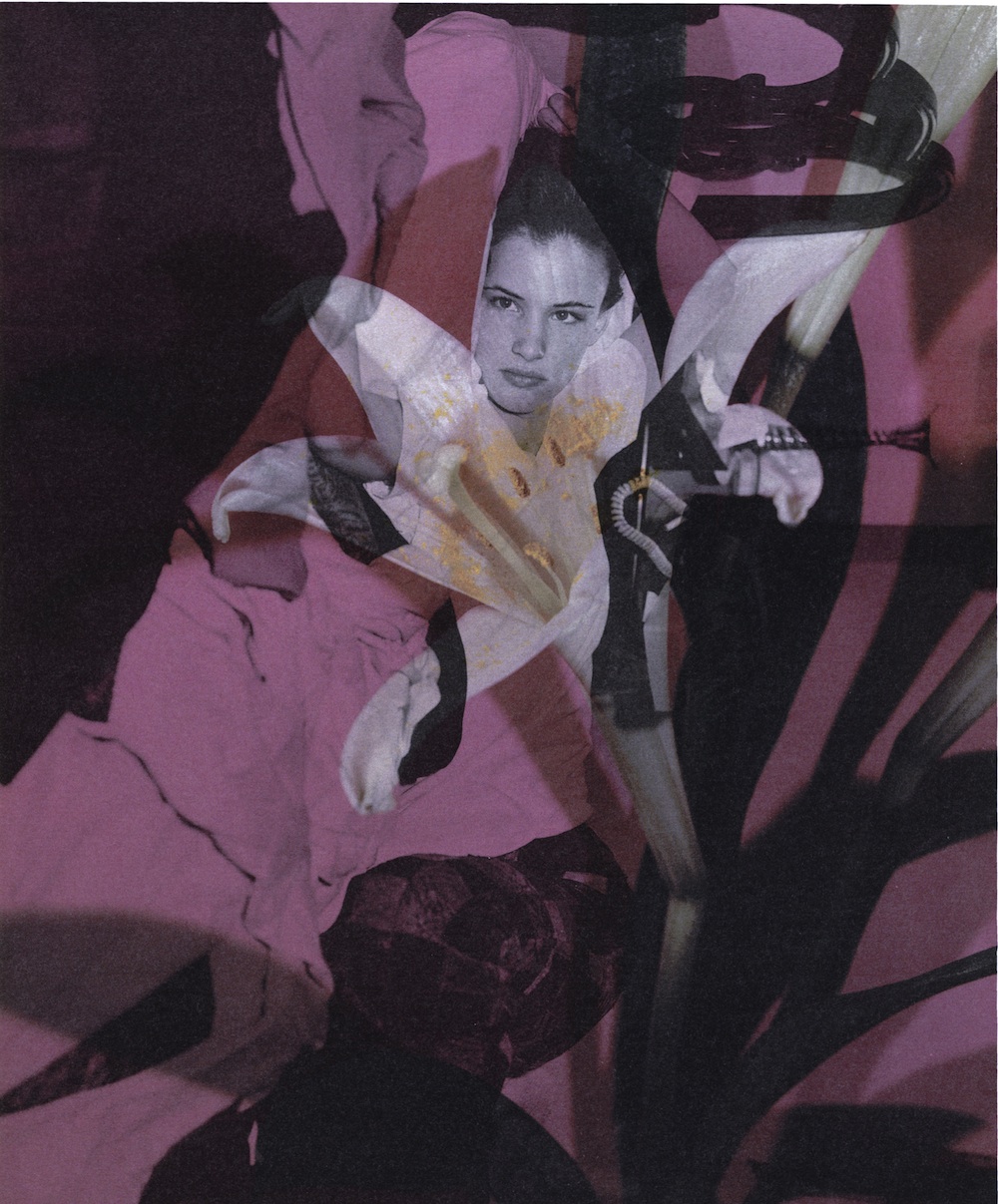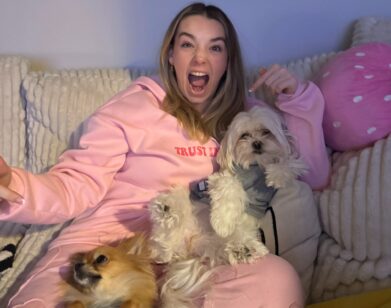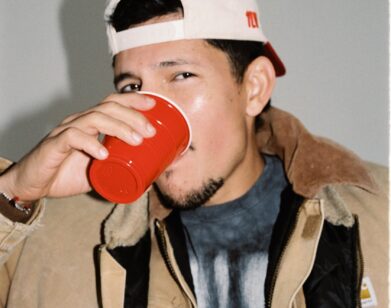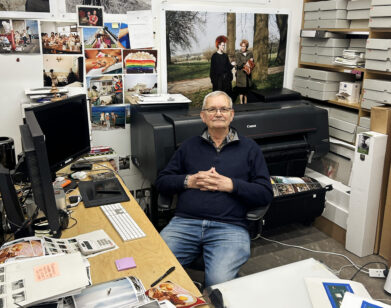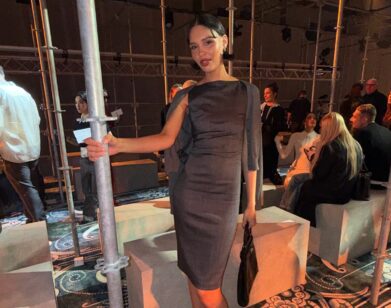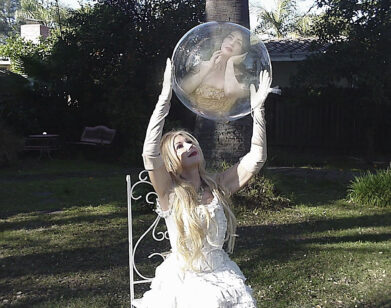New Again: Juliette Lewis
If I were a man, I’d be Brad. And if Brad were a woman, he’d be me.”-Juliette Lewis
In New Again, we highlight a piece from Interview’s past that resonates with the present.
To set the scene: It’s 1992, and an 18-year-old Los Angeles girl named Juliette Lewis is living out of hotel rooms. Having dropped out of high school four years earlier, and legally emancipating herself from her parents a year before that, Lewis is fresh out of playing the role of Danielle Bowden in the revered 1991 Scorsese thriller, Cape Fear. The role garnered her an Oscar nomination for Best Supporting Actress, but she remains nonplussed. She doesn’t gush about it “not feeling real,” or “being blessed.” Instead, she praises the directors she’s worked with and talks bitingly about “generic” artists. She proclaims herself to have the soul of a 28-year-old, having worked in television since the age of 12. She is scorching and committed.
20 years after Interview first spoke to Lewis, to no one’s surprise, the actress has gone on to become one of the most versatile and unique performers of her generation, lauded for her roles in Oliver Stone’s Natural Born Killers and Quentin Tarantino’s From Dusk Till Dawn. From 2006–2009, Lewis took a break from acting to focus on touring with her successful punk band, Juliette and the Licks. Today, Lewis has several upcoming projects. Most recently, it was announced that she will be guest starring in the upcoming season of the offbeat IFC comedy series Portlandia, an apt fit for an actress who has spent two decades existing just left of the mainstream.—Hannah Mandel
Juliette Lewis
by Ingrid Sischy
As Danielle Bowden, mustang daughter of a gelded southern lawyer in Martin Scorsese’s Cape Fear, Juliette Lewis did much more than take Robert De Niro’s thumb in her mouth. In the process of rejecting her parents’ hypocritical middle-class values, Danielle is, in her way, as much of a terrorist as De Niro’s Max Cady. A less assured actress could have made the character a tease or a drip, but as played by Lewis, she is a squeezed tube of 10th-grade gaucheries and adolescent vulnerability, sexy, furtive, uncertain, and tender. She is also the moral center of a film in which adulthood symbolizes corruption-and Scorsese must have known she could occupy that position when he cast her.
There are actors in these pages who look as if watching East of Eden, Rebel Without a Cause, and Giant changed their lives, but there may be as much James Dean in this slip of a girl as in the coolest boy. Like Dean, Lewis fills the screen with her very restlessness. Daughter of actors (and Clint Eastwood regular) Geoffrey Lewis and graphic artist Glenis Batley, Lewis grew up in the San Fernando Valley and at 12 appeared in the Showtime miniseries Home Fires. By 15, she was a busy TV actress (I Married Dora, The Wonder Years) and a legally emancipated minor. Her performance as a soldier’s pickup who turns killer in the NBC movie Too Young to Die led to Cape Fear, in turn led to a key role in Woody Allen’s “Fall ‘91” project, her seventh feature. In between she played a pregnant teenage girl in That Night, due for release this spring.
INGRID SISCHY: How old are you?
JULIETTE LEWIS: 18.
SISCHY: When did you start being an actress?
LEWIS: Professionally, 12 and a half.
SISCHY: Where was this?
LEWIS: I grew up in L.A., except for three years in Clearwater, Florida. That was a distinctive part of my life—ages six, seven and eight.
SISCHY: Why?
LEWIS: It was the time when I was most alive. It was nothing but playing time, and I was allowed to do that. I was living with my mom. My mom would work a lot—we didn’t have a lot of money. It was me and my sister. She’s two years younger and we would play. That’s when the acting was growing in me.
SISCHY: What was your first part?
LEWIS: A miniseries [Home Fires] for Showtime. It was your basic story about a dysfunctional family with a lot of lies.
SISCHY: Is Cape Fear the first time that you’ve got this kind of overwhelming reaction?
LEWIS: No, Too Young to Die got a lot of reaction. It was the first time I was allowed to create without people saying, “Don’t fiddle with your hands.” But it was still TV, and therefore there was not nearly as big a reaction as with Cape Fear.
SISCHY: This seems to be a moment in your life in which you’re taking off.
LEWIS: There’s a lot of taking-off moments. But, yes, without this experience, for example, I wouldn’t have gotten the new movie. If Woody Allen hadn’t seen Cape Fear, I wouldn’t have been asked to audition for him.
SISCHY: You’ve just been cast, right? I understand that the whole thing was very quick.
LEWIS: I took a red-eye—missed a whole night’s sleep. I did the audition that day on no sleep. I went to his house. The casting woman had the same first name as me, different spelling. I did my explaining—I always explain in auditions that this is nothing like it would be if I get the part. With brilliant artists I always trust that they will be able to see it. That night they told me I got the part. And that I needed to stay in New York. I had my first day of working yesterday.
SISCHY: That’s six days later?
LEWIS: Yes, actually there’s months before you start your job.
SISCHY: Why do you think you wanted to be an actress?
LEWIS: As a job acting is the closet thing to childhood make-believe that there is. You have to learn all the technicalities. But once you do you can just come alive—like in that scene with Robert De Niro.
SISCHY: Did you have an idea what that scene [on the school stage] in Cape Fear would do to people?
LEWIS: No. But when I looked at it I always thought of it as my scene in that it has a beginning, middle, and end. All the others I just pop in. This is a full scene that I could live out—I always knew I could do a lot of creating in it.
SISCHY: Would you say that you had an upbringing that made you have to dream a lot?
LEWIS: Not really. I had an upbringing in which I was allowed to be free and use my mind. My parents only helped me to be myself. It was only in my teenage years that I met people who made me start having doubts about who I was. They said you shouldn’t be confident, you shouldn’t be strong. It is only when you meet those other people that you lose confidence. My dad kept me away from people who treat children wrong. It’s just amazing that there is such a way to raise a person without giving them complexes. But nobody does it. They think it should be the old school. But look at the products. Wouldn’t it be great if you could avoid the complexes? hen you could deal with the complexes of life. Anyway, I had a beautiful upbringing. No complaints.
SISCHY: You also seem to have been lucky with what for many people become bad authority figures—directors.
LEWIS: There’s been Robert Markowitz, Scorsese, and now there’s Woody. But it’s not nearly enough. There are generic artists and there are artists. “Generic” stands for the programmed, the money-people artists.
SISCHY: You’re going to get some of those in your years.
LEWIS: I already have. You know, what’s great is that I’ve been through the hardest times workwise already, the kind of times when nobody validates you. They don’t think that you could possibly know anything. It had a lot to do with my age and being a girl. You have the two biggest things against you. Anyway, I’ve already been through the worst. But even experiencing all that, I always got some knowledge. So it isn’t as if I said, “I wish I didn’t do it.” That’s with both life and work. At this point, at 18, I’m not going to go through a drug phase. People can’t believe that. They don’t understand I moved out at 14 and a half. I was going to get emancipated. Me and my parents worked out what would be best for me, so I could eliminate all the limitations there are when you’re young. I ended up staying with Karen Black—she’s a friend of my dad’s. Karen had a room upstairs. My exchange was to buy dinner on Friday’s. So I was at that place where you would be when you’re 20 or after college when you first move out into the world. So in ageleand I’m probably 28. But these are all just numbers, because adults are just children sometimes. But evil, hurt children. All that evilness is always just from pain and fear, and that’s what I’ve come to understand. I’ve come to understand people now. Before, I would blame them for treating me in such a naïve way. I don’t hate evil, vicious people anymore.
SISCHY: Understanding so much about evil seems to be very good training for acting.
LEWIS: Not just evil, but understanding human nature. Perception. That’s how I see acting—perception and communication. De Niro said the greatest thing: “You don’t need words to express feelings.” A grunt can do more than two paragraphs. Isn’t that great? You know, you do a thing like Cape Fear and people think either you’re that way or they think you must know what you’re doing. That’s all I’ve wanted people to know- that I know what I’m doing. And I even know when I don’t know what I’m doing. Then there are people who don’t want to know that you know what you’re doing.
SISCHY: I want to focus especially on this moment in your life. I want to talk about friendships. [phone rings]
LEWIS: Maui? This is so ironic. I’m in the middle of an interview. [To I.S: She’s my best friend.] Why, what did you do? Oh, well, if it isn’t cut too short it can be made better. [J.L hangs up.] She’s my best friend of nine years; we grew up across the street from each other. But back to what we were talking about. You said you’re focusing on this moment in my life. Actually, it is the end and the beginning. That’s what’s so scary about it. You can lose that whole other aspect of your life that took you to this place. But it doesn’t actually have to end. If you’re in it for the stardom, it does end. You get the notoriety and the praise, and that’s what some people want. That’s what they want to achieve; then they can live on the little pedestal of starland. For me, why it doesn’t end there is that the notoriety is going to get me where I want to be—a continuing thing that always grows because it’s art. The praise for Cape Fear will help me work more artfully—I can work with real artists, like Robert De Niro and the directors, and then go to artland, which is the best land to be in in this world. Why I talk so seriously about art is that art is the only thing that helps people stay alive, and it is the only thing that has allowed people to create joy in this insane, suppressive universe. And art is the only thing that they can’t get rid of. They’ve tried, but ultimately they can’t stamp it out. And that leads into a whole other thing about why I was so happy to meet Scorsese and work on Cape Fear. I was getting bitter there for a while, in thinking I was all alone. And then I met them and thought there are artists out there helping to preserve art. These guys blew me away. It’s only artist who can help artists.
SISCHY: So now you’re living in hotel rooms? And speaking to the people you’re close to on the phone?
LEWIS: Which isn’t enough. And that’s why it will be good when I get established. Then I can be more causative in my own life. That’s when you do less of what other people tell you to do. What I’m getting at is that the people who I love and my family mean a lot to me. And I want to get established so I can say, “No, I don’t want to do [such and such] a movie,” so I can spend time with the people I love.
SISCHY: Are most of the people you love actors?
LEWIS: No, not at all. I have a few friends. When I say a few, I mean four. I know I’ll see them all my life. And there’s a person I live with and love who is an actor. And it’s by complete coincidence that he is an actor.
SISCHY: What do you think it means to be wild today?
LEWIS: Ooh, God! It really depends on the person. Being wild can be wearing a silly hat. Being wild can be dancing weird. Being wild can be shooting people. What do I think being wild is? Nothing. Actually, the whole world is wild. Everything is wild. There we go.
THIS INTERVIEW INITIALLY APPEARED IN THE FEBRUARY 1992 ISSUE OF INTERVIEW.
For more New Again, click here.

